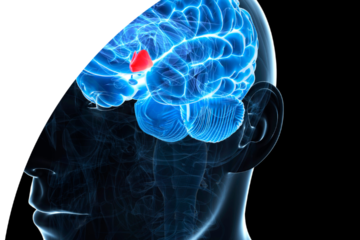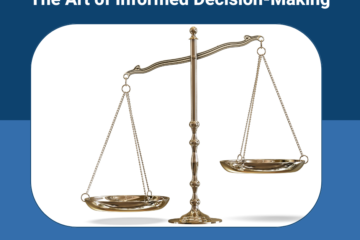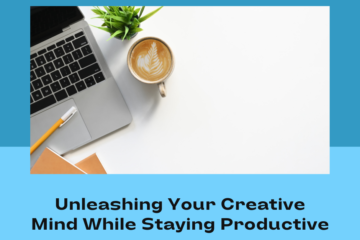
Introduction:
Do you ever feel like you’re living in your own “bubble,” ignoring the rest of the world? If so, you might be missing out on important information and chances to interact with the people and events around you. Developing your powers of observation to help you become more aware and improve your ability to think critically. In this piece, we’ll look at eight good ways to improve your ability to notice things.
Key Points to Remember
Observation is more than just passively seeing things. It involves actively using your senses to gather specific information for review. Good observation helps you learn more and do things better in many parts of your life, such as at work and with other people.
1. Know Your Subject
To be a good watcher, you need to know a lot about what you’re looking at. Whether you’re watching a team, a place, or a process, knowing how it usually works will help you spot differences or important details. Before you start making observations, get as much information as you can. This will help you make more accurate judgments.
Essential for Effective Observation:
If you want to be a good observer, you need to know a lot about your topic. Your ability to notice small changes or important details during observation is directly related to how much you know about the subject.
Subject Versatility:
Whether you’re looking at a team, a place, or a complicated process, knowing how it usually works gives you a point of reference for comparison. Because you know the area well, you can spot things that are different or interesting that you might not have seen before.
Enhancing Accuracy:
Your assessments will be more accurate if you learn as much as you can about the topic before you start making observations. A well-informed observer can make better decisions and draw more useful conclusions from the data they see. This gives them more valuable and trustworthy insights.
2. Slow Down and Look Outwards
Rushing through life and being stressed out can make it harder to notice things. Slow down and pay attention to the world around you. Mindfulness methods can help you train your focus outward, so you can pay more attention to other people and your surroundings.
Impact of Rushing and Stress:
Being in a hurry and being stressed out all the time can hurt your ability to pay attention. When you are always busy and in a hurry, you might miss important details and minor clues in your surroundings.
The Importance of Slowing Down:
You need to slow down if you want to improve your ability to observe. You can learn more about the world around you and understand it better if you stop and pay attention to it.
Enhancing Powers of Observation through Mindfulness:
Using mindfulness methods can be a powerful way to train your attention to go outward. Mindfulness means being fully present in the moment and paying attention on purpose to your surroundings and the people around you. This makes you more aware, so you can pay more attention to people’s actions, body language, and the subtleties of your surroundings. This helps you make more meaningful and insightful observations.
3. Try Something New
Getting out of your comfort zone and going to new places can help you become more aware and improve your ability to observe. Do things that make you think hard and force you to pay close attention. Visiting museums and art galleries can be especially helpful because they force you to look at and think about new things.
Stepping Out of Comfort Zones:
To try new things, you have to leave your comfort zone and be open to new things. By getting out of your safe zone, you expose yourself to a whole new world of things that can wake up your senses and help you become more aware.
Heightened Awareness:
When you do things that make you think and require your full attention, you naturally become more alert and aware. These new things cause you to be in the present, which makes it easier to notice and take in the details of your surroundings.
Benefits of Going to Museums and Galleries:
Going to museums and galleries is a great way to learn about and enjoy new things. The displays and art exhibits are a rich tapestry of colors, shapes, and ideas. They urge you to look closely and see things from different points of view, which improves your ability to observe.
4. Cut Out Distractions
Observing well requires a lot of concentration and attention. Make it easy to observe by making sure there are few distractions. Use methods like active listening and getting into a state of flow to stay on task and avoid getting distracted.
Importance of Concentration and Focus:
To observe well, you need to pay attention and concentrate. When your mind is clear and you are paying attention, you can take in information better and notice even small things that you might miss otherwise.
Creating a Conducive Environment:
To avoid being distracted, it’s important to set up a good setting for observation. Choose a place that is quiet and relaxing, where you won’t be interrupted and can focus on the subject or situation at hand.
Techniques for Maintaining Focus:
Using certain techniques can help you stay on task while observing. Active hearing, in which you pay full attention to what is being said or done, helps you learn important things. Also, getting into a state of flow, which is a mental state of being completely absorbed in a task, helps you stay in the process of observing, eliminating outside distractions and improving your ability to observe.
5. Have Fun
Mental puzzles and trials can be a great way to work out your brain and improve your ability to think and reason. Play games like cryptograms, logic puzzles, or the Rubik’s Cube to keep your mind active and help you look at things more closely.
Mental Workout for the Brain:
Games with mental tasks and puzzles can be a great way to work out your brain. These tasks improve different mental skills, like logic, reasoning, and problem-solving, by boosting cognitive functions.
Mind-Stimulating:
Games like cryptograms, logic puzzles, and the Rubik’s Cube require you to think critically and carefully. As you do these things, your brain is pushed to try out different ideas and answers. This helps you become a better observer and thinker.
Encouraging Deeper Observation:
These games are very complicated, so you have to pay close attention to the little things. As you try to figure out patterns, find answers, or change puzzle pieces, you naturally sharpen your ability to notice small details that can make a big difference in the end result. So, these games improve your ability to notice things by making you pay close attention to every part of the task.
6. Test Your Recall
Observation is impossible without memory. Detailing what you remember from the past will help you remember things longer term. Try Kim’s Game to improve your short-term memory. You have to study and remember different things in a short amount of time, including things that use your other senses.
Memory’s Role in Observation:
Memory is a key part of being able to observe well. When you can remember things from the past, you can make links and comparisons that give your observations a bigger picture.
Improving Long-Term Memory:
Having a strong long-term memory helps you notice things. By remembering the details of things that happened in the past, you can better spot patterns, trends, and changes over time. This lets you make more intelligent observations.
Kim’s Game for Short-Term Memory Practice:
Kim’s Game is a great way to work on your short-term memory. In this practice, you look at a group of different things for a set amount of time and then try to remember them. This practice makes it easier for you to remember and remember things in real life, which makes your observations more accurate and complete. Also, adding things that make you use your other senses, like smell or touch, tests and broadens your ability to remember things. This makes your observation skills more well-rounded.
7. Keep a Journal
Keeping a diary makes you a better observer of the world around you. Find a place to sit down and write about what you see and who you meet. Use all your senses to give a good description of the scene. You might want to bring a notebook with you to draw and write down what you see.
Enhancing Observational Skills with a Journal:
Keeping a book is a good way to improve your observational skills. Writing down your thoughts trains you to pay close attention to your surroundings and the people you meet.
Descriptive Detailing:
When keeping a journal, find a quiet place to sit down and write about the details of what you’ve seen. By talking about what you see, hear, smell, feel, and even taste, you use all of your senses and give a full and clear description of the scene.
Visual Capture through Sketching:
Sketching is a way to record your observations visually. You might want to bring a sketchbook along with your diary. Sketching gives your notes a new depth and lets you show intricate details or other things that words might not be able to fully explain. Visuals add to written explanations, which makes your observations more complete and full of context.
8. Develop Your Critical Thinking Skills
Effective observing is based on being able to think critically. Improve your ability to ask questions, think things through, and examine what you see. Use different tools and methods to improve your ability to think critically, which will help you draw useful conclusions from what you see.
Integral Role of Critical Thinking:
Being able to think critically is a key part of being able to observe well. It means being able to analyze, interpret, and make sense of information in an objective way. This lets you make observations that are well-informed and logical.
Questioning, Reasoning, and Analyzing:
To improve your ability to think critically, try questioning the information you see and looking for different points of view and possible answers. Use reasoning to put pieces of information together and find connections or patterns. By carefully analyzing your findings, you can get useful insights and come to correct conclusions.
Tools and Techniques for Development:
Use different tools and techniques to improve your critical thinking skills. SWOT analysis, mind mapping, and concept mapping are all examples of tools that can help you organize and understand knowledge better. Debates and discussions also help you think critically because they challenge your ideas and push you to look at them from different sides. This helps you make more nuanced and well-informed observations.
Conclusion:
Being aware makes your life more interesting and helps you make better decisions. By doing these eight things to improve your observation skills, you can become more knowledgeable, interested, and successful in your personal and work life. If you look closely at the world around you, you’ll find new possibilities and ways of seeing things that were hidden before.
FAQs
1. How will improving my ability to notice things help me at work?
Improving your ability to observe can help you at work by making you more aware of details, helping you spot possible problems or opportunities, and making you better at solving problems.
2. Can I get better at seeing things at any age?
Yes, you can learn to notice things better at any age. The brain is very flexible, and regular practice can make a big difference in how well you can observe.
3. Are there specific ways to learn how to think critically?
Yes, there are many ways to improve critical thinking skills, such as asking Socratic questions, making thought maps, and looking at the relationships between causes and effects. These tools can help you notice better and learn more from what you see.



0 Comments